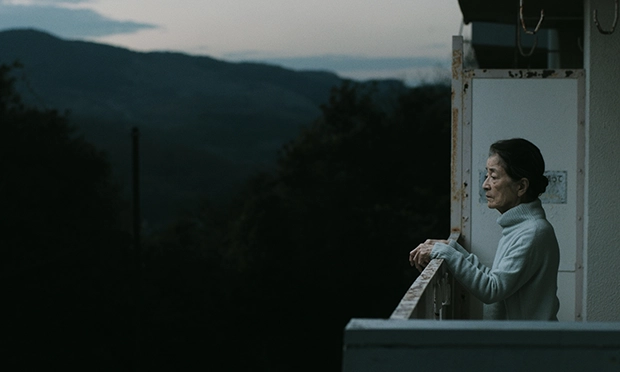Plan 75, film review: ‘A quiet scream in the face of an increasingly heartless world’

Chieko Baisho in Plan 75. Image: courtesy Curzon
“Growing old is not for sissies,” said Bette Davis at her most adroit.
With rising healthcare and living costs, that statement is even truer now.
Chie Hayakawa’s new film, Plan 75, shunts us a few years into the future and a few horrific steps forward along our current trajectory.
Japan has an interesting relationship with age. A highly honorific language and culture ingrains respect for older people.
However, an ageing population has put pressure on all aspects of society – economic, social, even mechanical. The so-called ‘silver economy’ is in the spotlight because of the surge in robotics needed to make up for the labour shortage.
Hayakawa’s future isn’t the hover cars and pretty-faced cyborgs of Ghost in the Machine, and it is all the better for it.
This is a world we know: a government introducing a brutal system of changes based on economic pressure (austerity anyone?).
The plan, ’75’, is to sell euthanasia to anyone over the age of 75. Shocking? Yes. Unimaginable? Sadly no.
The film is bleak and without flowery embellishments. Small domestic settings, interiors like Metro Bank, or the Covid testing stations that plagued us in that difficult time, play host to demonically smiling agents. Their job? Convince the elderly of the benefits of death. This dance of the bureaucracy of killing is one of the film’s slower-burning but most effective fires – among many, I might add!
Another smouldering element is Chieko Baisho, who interestingly played the voice of Sofia (another older woman marginalised by society) in Howl’s Moving Castle.
This time, Baisho is the most prominent of the three leads, Michi. After losing her job as a cleaner, she is plunged into uncertainty. Tempted by the cash reward and glistening cruise offered by Plan 75, she wrestles with the cultural obligation to the state, despite an active interest in humanity and life.
Baisho’s performance is steely and subtle. Her gnarled and expressive hands are often shown clutching objects as if holding on to life itself.
The struggle between rationality and emotion is built slowly over many short snippets, crafting an arch of sedimentary complexity. Like delicate layers of rice paper, the film builds up in personality, winding everything together in a satisfying and poignant ending.
But I’m jumping ahead. Hiromu (played by Hayato Isomura), our second protagonist, is a chipper salesman of death, trying his best to convince Michi to sign up for the program. This short link spins us down simultaneously as he battles with the plan, and what it means for his family (I will say no more).
At the same time, we get glimpses into Japan’s outlook on immigration with the touching struggle for survival of Maria (Stefanie Arianne), a maid from the Philippines working to support her family.
All are linked by the fight for life and death, without even the hint of melodrama. All three main characters provide utterly engrossing performances, but Baisho gets the largest portion of the limelight and thrives in the glare.
Her loneliness, crafted out of wide shots with her at a distance from life, is joyfully contrasted with moments of sweet interaction: bowling, karaoke, the power of friendship at any age.
This film is a quiet scream in the face of an increasingly heartless world, but never pushes its aims too much up our noses. A future all too believable and a choice all to impossible to make.
I was left floored, depressed, and with a desperate urge to call my grandmother and start paying into a pension. A film with an effect, you could say.
Plan 75 is out now in cinemas.
